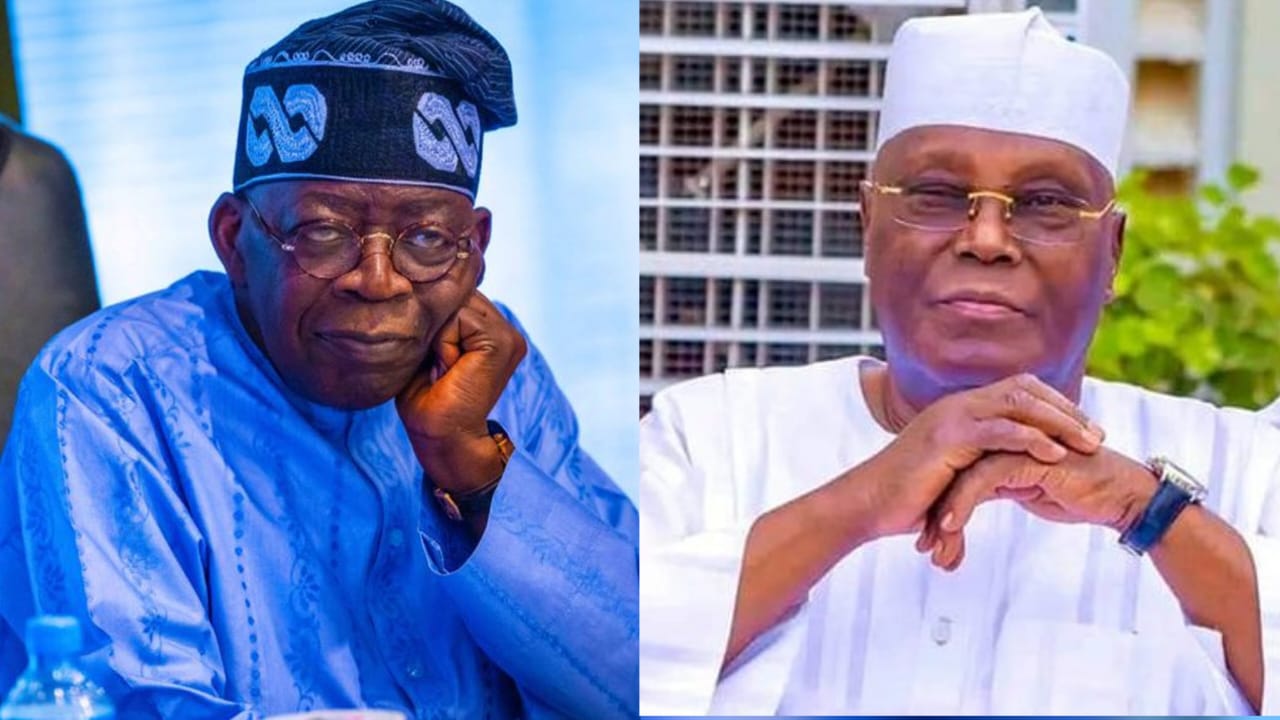Headlines
Atiku is instructed by the court to prove the fabrication of Tinubu’s certificate beyond a reasonable doubt

Justice John Okoro, the panel’s chairperson, stated on Monday that Atiku Abubakar, the standard-bearer for the People’s Democratic Party in the February presidential election, must prove the certificate forgery accusation made against the former governor of Lagos State beyond a reasonable doubt.
During the hearing of the election petition appeals submitted by Atiku and Peter Obi of the Labour Party, Okoro issued the warning.
He made this after Atiku’s main attorney, Chris Uche, SAN, asked the court to accept the petitioners’ new evidence in a submission.
Atiku has asked an Illinois Chicago district court to seek the publication of the President’s academic records in an effort to overturn Tinubu’s victory and disprove the claim that he had the qualifications to challenge the presidential election.
The former vice president had charged Tinubu with forging the Bachelor of Science in Business Administration degree from CSU that he received in 1979 and submitted to the Independent National Electoral Commission.
He asked for copies of all diplomas CSU issued in 1979, Tinubu’s 1979 diploma, and all diplomas given to other students in 1979 that are comparable to the one CSU handed him and have the same font, seal, signatures, and content.
The attorneys for Tinubu contested Atiku’s request, claiming privacy issues even as they agreed that only the certificate should be made public and not other confidential documents.
academic standing
But the ex-Lagos State governor’s academic records, which Atiku submitted in support of his election petition appeal at the Supreme Court, were made public by a US court order.
In his Monday speech to the Supreme Court, Uche emphasised the importance of the issue of Tinubu’s academic records and urged the court to accept it as new evidence.
The senior attorney declared, “The Supreme Court should admit that the problem regarding Tinubu’s certificate is one that is significant, serious, and constitutional. I implore the court to accept the new proof of President Tinubu’s CSU academic transcripts that Atiku has provided.
““The court ought to review Tinubu’s documents and render a verdict free of technicalities. The court has a responsibility to consider it as a policy court and should avoid technicalities.
READ ALSO: Final judgement: Obi and Atiku will lose in the Supreme Court, says Ganduje
The court should not be constrained by the question of the 180 days, according to Atiku’s lead attorney.
While categorising the situation as criminal in nature, Justice Okoro insisted that it must be proved beyond a reasonable doubt.
He noticed that there were two letters from Chicago State University that disagreed with each other.
He said that one of the letters validated and the other rejected the President’s certificate.
“This is a criminal matter that needs to be proven beyond a shadow of a doubt,” he said. There are two conflicting letters from the CSU, one validating and the other invalidating the president’s certificate.
Justice Emmanuel Agim, a different panellist, noted that the deposition Atiku wanted to provide as evidence was conducted outside of the courtroom, at Atiku’s attorney’s office.
“I was expecting the college to write denying the validity of the disputed documents. Is it permissible for a stenographer to administer oaths? We are dealing with a situation that has implications for national security,” he said.
However, Uche asserted that there was no disagreement regarding the fact that the depositions were conducted with Tinubu’s US attorneys present.
Akin Olujinmi, SAN, the attorney for the All Progressives Congress, argued before the court that Atiku shouldn’t be permitted to submit any documents that weren’t already submitted to the tribunal.
You cannot smuggle a document into the Supreme Court without first presenting it to the trial court, the speaker asserted. The appeal is weak and poorly thought out. It should be categorically rejected.
In response to Uche’s arguments, Wole Olanipekun, SAN, the president’s attorney, urged the court to reject the new documents and pointed out that INEC was not a party to them.
“In the USA, the depositions are not admissible. It resembles the deposition that takes place in Nigeria. INEC was not a party to the deposition, which was conducted outside of court. Before it may be used as evidence in court, the deposition must be accepted by the party that took it, he reasoned.
Additionally, he claimed that the 180-day deadline for concluding election petition cases “is like a rock of Gibraltar, it cannot be moved.”
Abubakar Mahmoud, the attorney for INEC, requested the court to dismiss the appeal and asked the court to interpret section 285 of the constitution.
